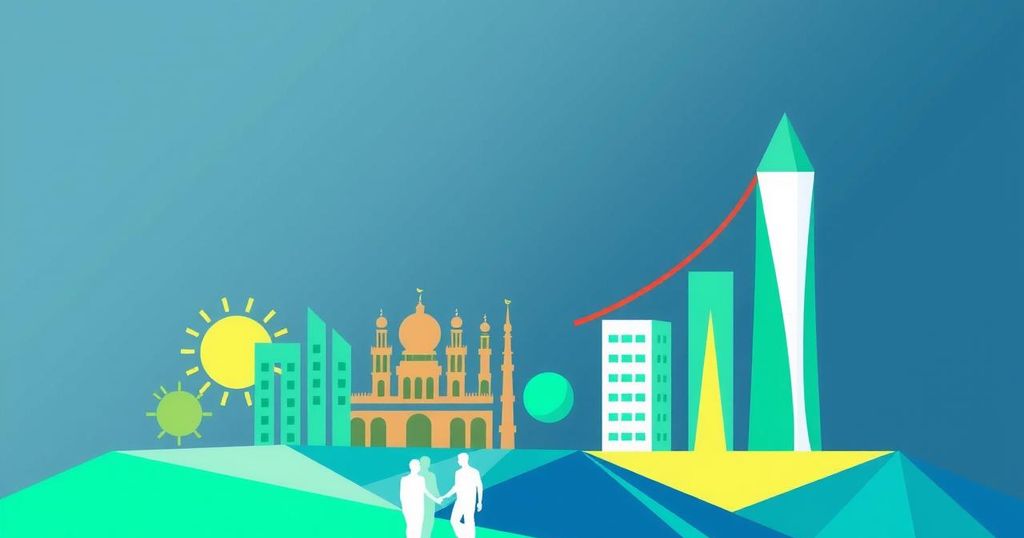The World Bank is assessing up to $900 million in financing for five key initiatives in Jordan to support economic reforms and social protection. This includes $400 million for welfare programs, funding for vocational training, entrepreneurship, and continued support for economic growth initiatives through the private sector. The proposed projects align with Jordan’s long-term reform plans to enhance economic resilience.
The World Bank is evaluating financing for five new projects in Jordan, potentially amounting to $900 million. These initiatives are designed to support economic reforms, enhance social protection, bolster key sectors, and foster entrepreneurship within the country. They align with the Country Partnership Framework for 2024–2029, devised by the Ministry of Planning and International Cooperation in conjunction with the World Bank.
In the previous fiscal year, the World Bank signed four agreements totaling $1.235 billion to fund various governmental projects in Jordan. An additional $41 million was secured from other donors, marking a record finance level for the last five years. To date, $554 million, or 44.8 percent of the total funds, has been disbursed, leaving $681 million undisbursed.
The proposed financing includes up to $400 million targeted at enhancing Jordan’s social protection framework, per the National Social Protection Strategy and Economic Modernization Vision (2022). This initiative aims to double growth rates, generate job opportunities, and enhance productivity in high-potential sectors, supporting the most vulnerable populations.
Additionally, the social protection system in place is noted to be the largest in the Middle East and North Africa, covering 34 percent of the population by 2022. Support from this system reaches 45.2 percent of Jordanians, including 42 percent of the lowest-income group, thereby playing a critical role in the welfare of these communities.
Moreover, a $400 million project is under evaluation to stimulate economic growth and create sustainable jobs through private-sector engagement. The World Bank is also considering $5.6 million additional funding for the “Masar” program which seeks to improve education quality and align vocational training with labor market demands, particularly for vulnerable groups including refugees.
To promote private investment and job growth, the Bank is reviewing an additional $50 million to support startups and small to medium enterprises in Jordan. This initiative builds on prior successes of the Innovative Startups and SMEs Fund (ISSF), through which Jordan secured $246 million in venture capital from 2018 to 2022.
Furthermore, the World Bank plans a second financing phase for the “Strengthening Reform Management” program, adding $7.5 million and extending the program duration to 2028 to continue supporting Jordan’s economic reforms.
The Jordanian government reiterated its dedication to economic reform during the London Conference in February 2019, outlining a five-year reform matrix, which was subsequently extended to 2024. This framework includes various political and structural reforms designed to solve major economic issues and improve the investment environment.
Despite regional instability, Jordan’s economy grew by 2.6 percent in the third quarter of 2024, as reported by the Department of Statistics. Although the conflicts in Gaza and Lebanon impacted sectors like tourism and transport, the World Bank’s Global Economic Prospects report anticipates continued growth of 2.6 percent for 2024 and 2025, slightly above earlier projections.
The World Bank is considering a substantial financial package aimed at enhancing Jordan’s economic and social structure through various targeted projects. By focusing on social protection, education, and private sector growth, this proposed support aligns with Jordan’s strategic reform plans. Despite geopolitical challenges, the Jordanian economy is poised for modest growth, demonstrating resilience and a commitment to reform.
Original Source: www.jordantimes.com






